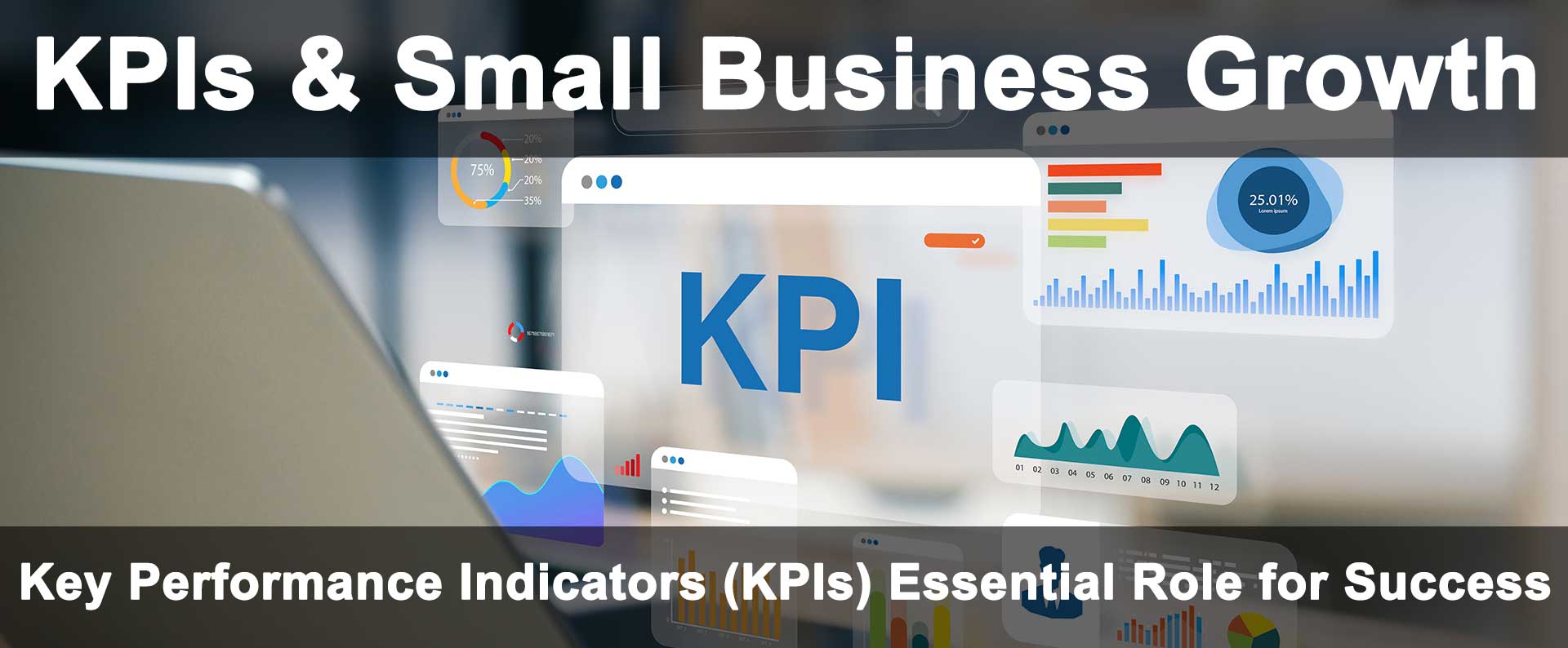As a small business owner, you manage a variety of tasks to ensure your enterprise thrives. One vital asset in this endeavor is the utilization of Key Performance Indicators (KPIs).
Here we'll discuss the definition and significance of KPIs for small businesses, along with practical ways to leverage them for enhanced growth and success.
Defining KPIs
Key Performance Indicators, commonly referred to as KPIs, are measurable metrics that help you assess your business's performance against its established goals and objectives. These quantifiable indicators shed light on how effectively your business is functioning in critical areas.
Depending on your specific objectives and industry context, common KPIs may include sales revenue, customer acquisition costs, website traffic, customer retention rates, and engagement on social media platforms.
Why KPIs Matter
- Track Progress:
KPIs help you monitor your advancement towards your business targets. By focusing on specific metrics, you can evaluate what strategies are effective and where there’s room for improvement.
- Spot Growth Opportunities:
KPIs enable you to uncover potential areas for expansion and enhancement. By analyzing these indicators, you can identify trends and patterns that require your attention.
- Data-Driven Decisions:
KPIs offer insights backed by data that aid in crafting strategic business decisions. With clearly defined KPIs, you can assess the success of your marketing initiatives, sales tactics, and overall business efficacy.
- Performance Oversight:
Keeping a close eye on your KPIs allows you to remain on course and make timely adjustments as necessary. By creating benchmarks and targets for your KPIs, you can track your evolution and adapt accordingly.
Implementing KPIs Effectively
- Define Your Goals:
Begin by clarifying your business objectives. What are your aspirations? Which metrics are crucial for assessing your success?
- Select Appropriate KPIs:
Choose KPIs that resonate with your business aims. Be sure to consider both financial and non-financial metrics pertinent to your industry and business model.
- Establish Benchmarks:
Set benchmarks and targets for each KPI to monitor your advancement and assess success. Regularly review and evaluate your KPIs to ensure alignment with your goals.
- Act on Insights:
Utilize the data derived from your KPIs for strategic decision-making and to enhance your business performance. If a KPI falls short of expectations, investigate the underlying issues and develop strategies to rectify them.
Examples of Valuable KPIs
Let’s delve into some key KPIs that can elevate your marketing approach:
- Website Traffic:
This metric reflects the number of visitors your website attracts, offering insights into the effectiveness of your digital marketing strategies. An upward trend in website traffic indicates that your content connects well with your audience.
- Conversion Rate:
This KPI indicates the percentage of visitors who complete a desired action, like making a purchase or subscribing to a newsletter. By analyzing your conversion rate, you can refine your marketing methods to turn more prospects into loyal clients.
- Customer Acquisition Cost (CAC):
This metric reveals the expense associated with gaining a new customer. By calculating your CAC, you can assess the profitability of your marketing campaigns and make informed budgetary decisions.
- Social Media Engagement:
Metrics such as likes, shares, and comments reflect how your brand resonates with your audience. A surge in social media interaction suggests that your content is engaging and your audience is actively connecting with your brand.
By adopting these KPIs and customizing them to fit your unique business goals, you can gain valuable insights into your marketing effectiveness and make strategic decisions that propel growth. Embracing the potential of KPIs enables you to allocate resources wisely, optimize campaigns, and ultimately fulfill your business objectives.
Don’t allow the intricacies of KPIs to intimidate you. Start small, concentrate on the metrics that hold significance for your enterprise, and watch as your marketing strategy transforms into a finely-tuned operation. Unlock the potential of Key Performance Indicators and elevate your small business to new levels of achievement.
The Wrap Up
Combining email and social media marketing tactics can greatly elevate your marketing efforts and yield remarkable outcomes for your small or medium-sized enterprise (SME). By leveraging the distinct strengths of both channels and executing well-aligned strategies, businesses can broaden their audience, enhance interaction, and foster lasting connections with customers.
Start delving into the harmonious relationship between email and social media right now, and see your marketing efforts thrive. With a carefully crafted, unified strategy, you can boost your results and set your business up for ongoing success in a competitive landscape.













